Backed by science. Built for ADHD.
Accessible, high-quality support for ADHD is a necessity.
At Shimmer, we are committed to raising the bar for non-clinical support by grounding our work in rigorous research, measurable outcomes, and meaningful change. Our commitment is simple: to lead with evidence, deliver with excellence, and ensure every person with ADHD has the tools they need to thrive.
Explore how our research-driven approach helps ADHDers succeed on their own terms.


















Where science meets ADHD life
We strive to provide evidence-based, culturally sensitive, and effective support for individuals with ADHD. The Shimmer Program combines the best of:
Measurable results that last
Across hundreds of thousands of data points and thousands of member journeys, we track outcomes through structured quality assurance processes, including post-session surveys, monthly feedback loops, and longitudinal tracking. This systematic approach gives us a reliable picture of member progress and ensures accountability for sustained behavioral change. The evidence demonstrates not only short-term improvements but also lasting gains in how members move towards their vision of well-being and achieve their goals.

The Shimmer Research Lab
ADHD coaching is a rapidly expanding field, and Shimmer is committed to strengthening its foundation.
We see our unique role as both practitioners and contributors: applying insights from established evidence-based fields while also generating new knowledge through original research. With the collective experience of our coaches and members, we’re able to study what works in practice, what supports well-being, what clients value most, and how coaching supports long-lasting behavioral change. This ongoing learning allows us to move toward truly scalable, effective ADHD care
By sharing these insights, we aim to set benchmarks for best practice, advance the evidence base, and ensure that progress in this field benefits individuals with ADHD as well as the wider professional community.
Proud presenters at
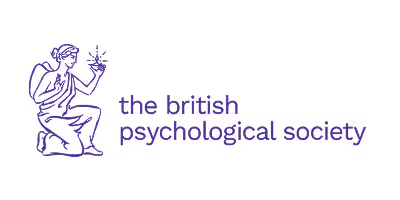
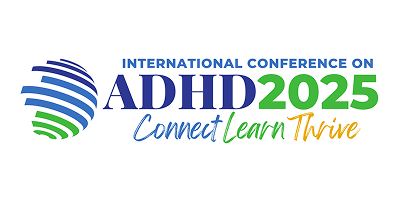
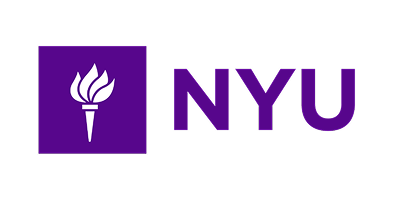
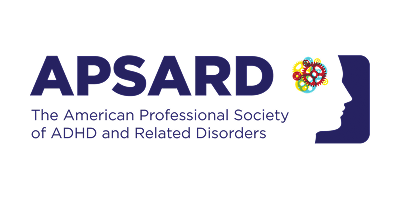
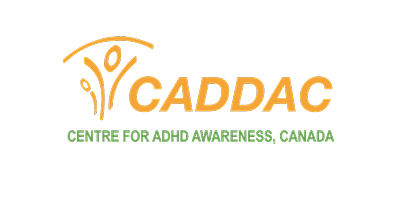
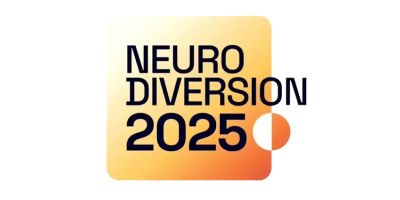
Interpretive Phenomenological Analysis
Traditional clinical ADHD and executive functioning assessments are designed to compare against a “normal,” "neurotypical" brain. And, unfortunately, these tools aren’t sensitive enough to the myriad ways in which ADHD can impact cognition, emotion, and behavior.
To address this, we used interpretive phenomenological analysis—a research method that examines how people make sense of their lived experiences. By analyzing the words and stories shared by the ADHD community, we identified recurring themes in how individuals describe their challenges.
From these themes, we developed the Shimmer Mastery framework inspired by Barkley’s Model of Executive Function—an assessment tool designed to help members better understand their ADHD and see how it plays out across three key domains of everyday life.
Management of time: how we relate to the past, present, and future
Getting things done: starting, following through, and completing a project
Pause (Emotional regulation): stopping impulsivity, generating options, and implementing solutions under pressure or stress
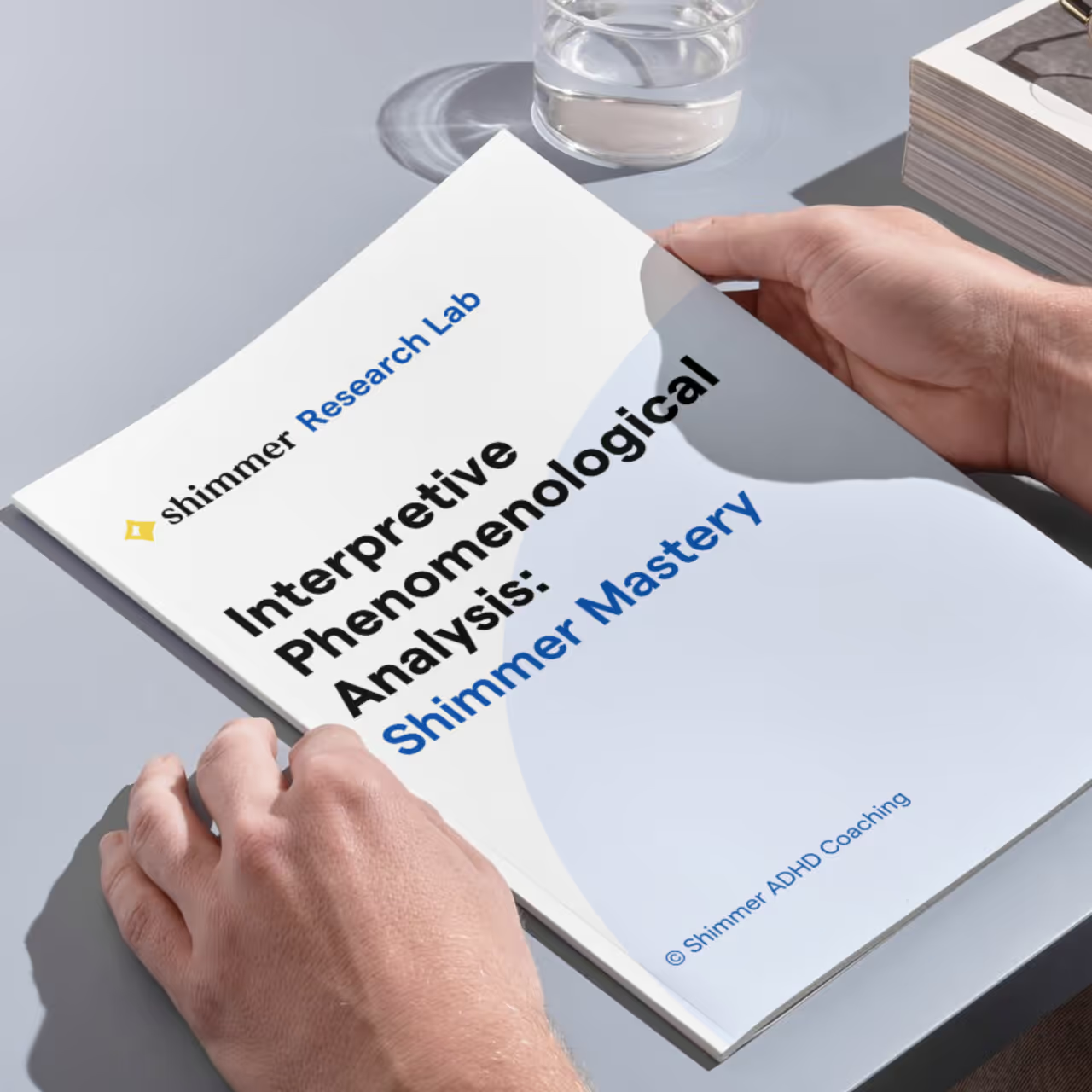
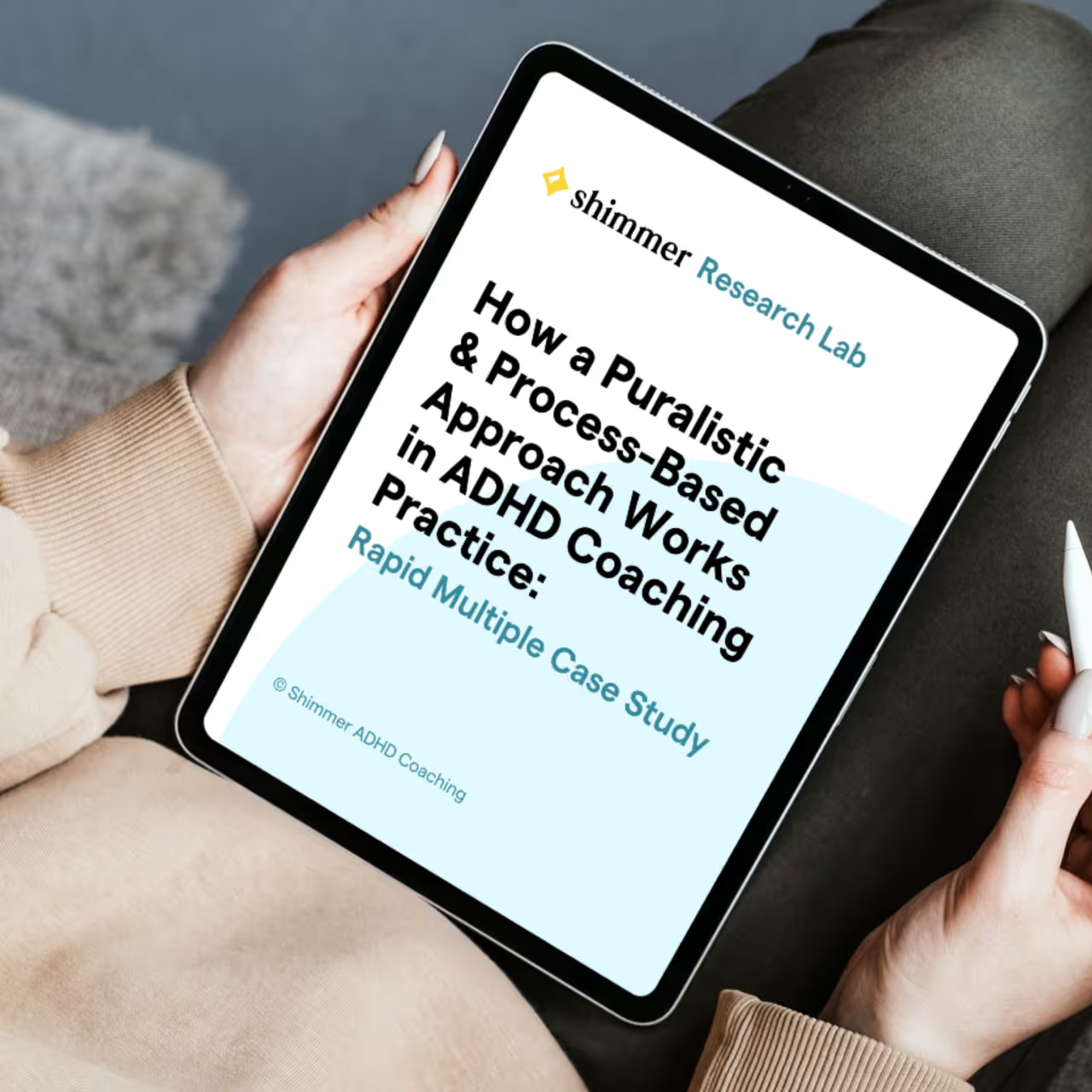
How a pluralistic & process-based approach works in ADHD coaching practice
There is a growing demand for ADHD coaching, yet limited research exists on the models that inform evidence-based practice in this emerging field.
The Shimmer research team developed a multi-dimensional working model of individualized ADHD coaching, mapping key functional life areas, executive function domains, and psychological processes addressed through the coaching journey. The purpose of the model is to support more contextual, dynamic, and outcomes-informed coaching practices.
We tested this model through rapid case studies that included both coach and client perspectives. The results showed that ADHD coaching goes far beyond task management, supporting growth in areas like self-concept, emotional regulation, motivation, values, behavior patterns, and social relationships.
The Periodic Table of ADHD Coaching: Delphi Study
The Shimmer Research Lab brought together a council of our experienced ADHD coaches to share real-world insights from their work with clients. Through dozens of case study submissions, we captured their collective wisdom and identified the practices that make the biggest difference in ADHD coaching.
The output of our study is a flexible, evidence-informed framework designed to support coach development and increase the field’s credibility, while allowing practitioners to retain their own philosophies and coaching styles.
This framework draws on contextual behavioral science, health and wellness coaching, and positive psychology, bridging research with lived practice to strengthen the field of neurodiversity-focused coaching.
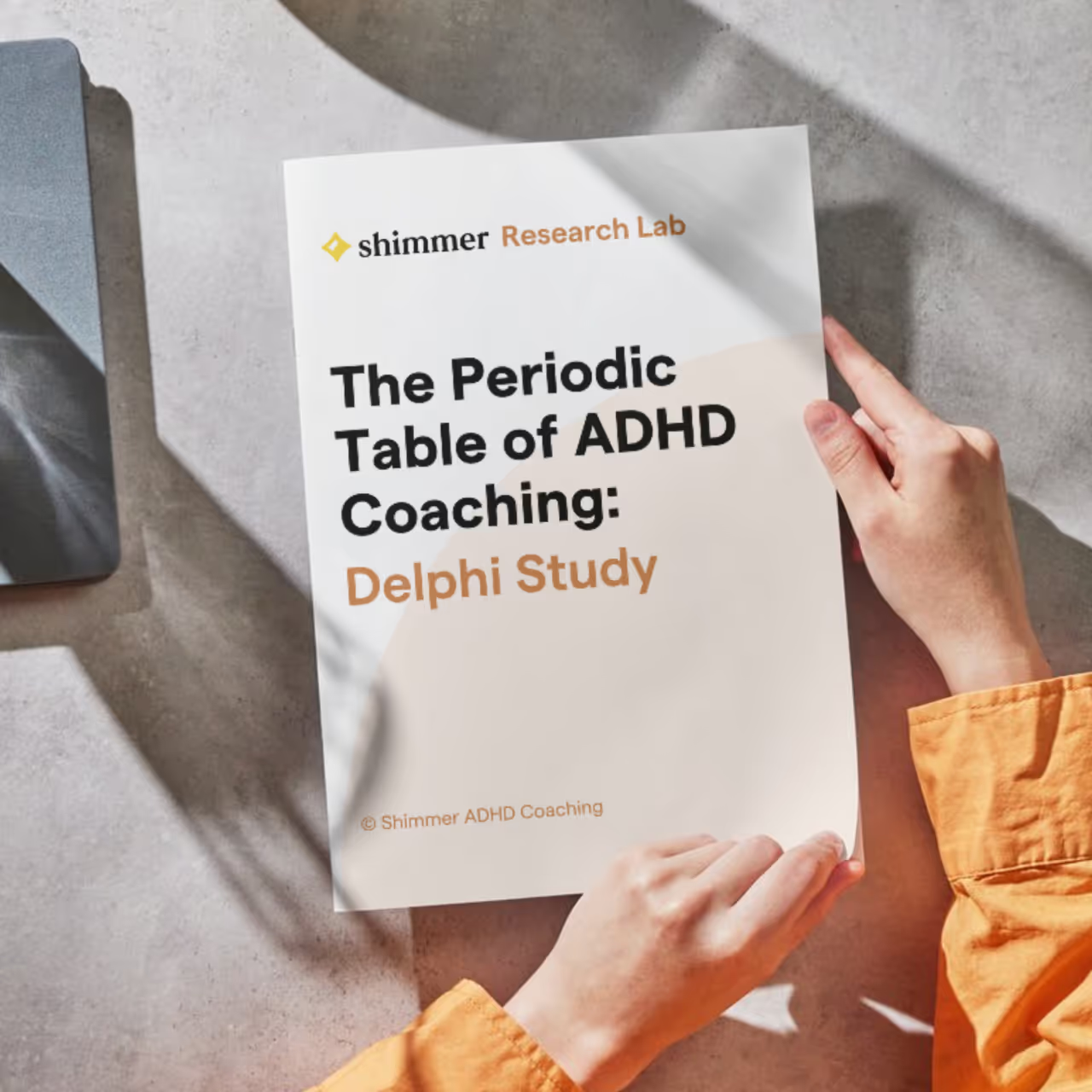
The Need for Non-Clinical Support
While medications are often considered first-line treatment for ADHD, alone, they do not always lead to improvement in behavioral symptoms or in the skills and strategies required for daily success. Areas such as self-regulation, organization, planning, and time management often remain challenging even when medication is used.
Research shows that non-clinical and psychosocial supports are an essential part of comprehensive ADHD care. Goal-oriented, skills-based supports, including ADHD coaching, psychoeducation, and peer learning, have been shown to help people sustain motivation and improve quality of life. These approaches go beyond reducing symptoms to improve real-life functioning and wellbeing, while also fostering positive identity development, self-compassion, and resilience.
Without non-clinical psychosocial support, ADHD care is incomplete.
The Science Behind Our Ecosystem
Every part of Shimmer is intentionally designed to support ADHD in ways that are practical, evidence-informed, and sustainable. From community spaces to learning tools, each feature is rooted in and deeply informed by a diverse range of psychological theories built to meet the real needs of our members.
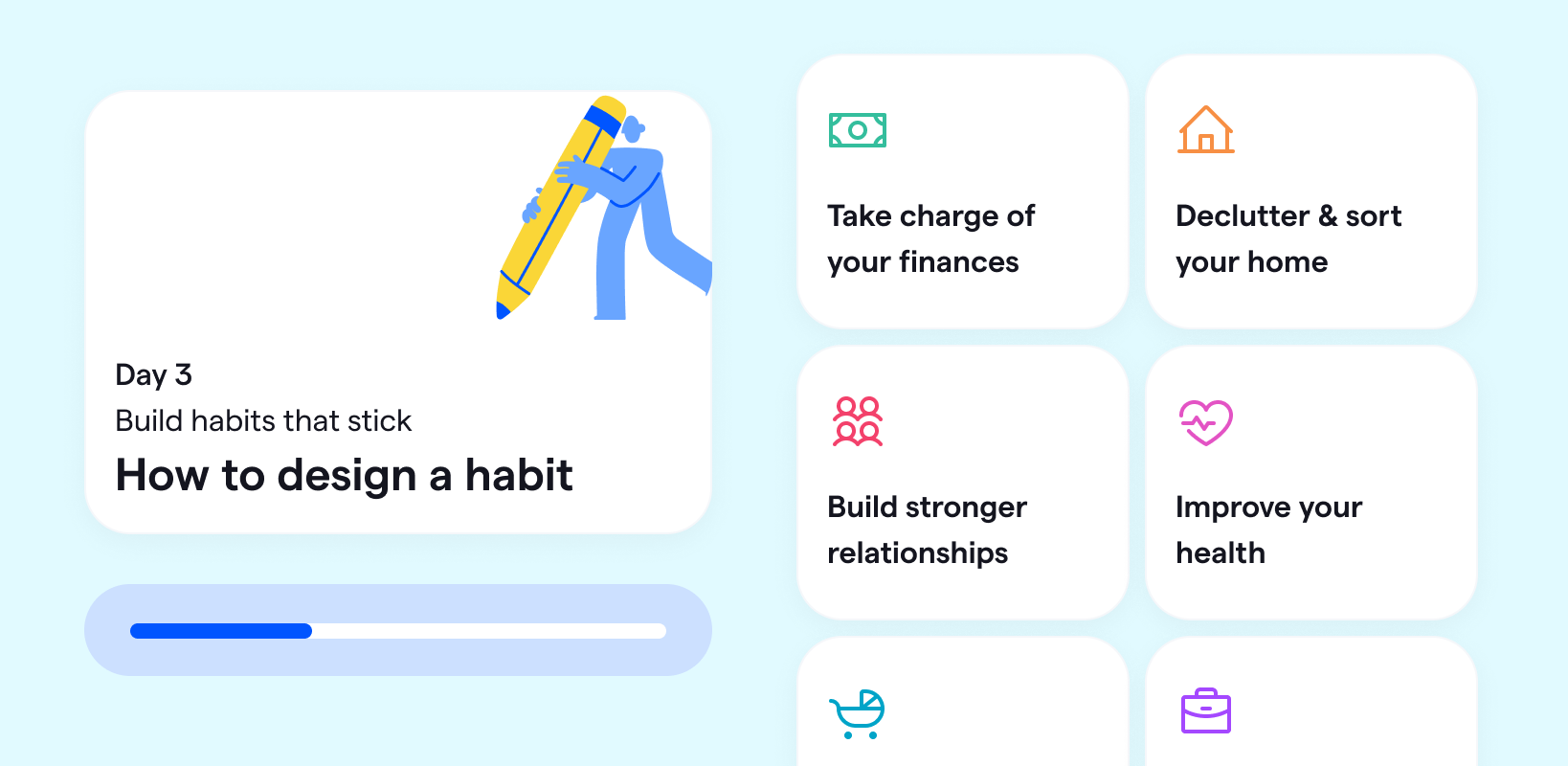
Learning Journeys
Bite-sized, asynchronous learning experiences with AI integration that supports metacognition and reflective practice.
Informed by Adult Learning Theory, Experiential Learning Theory, Habit-Formation Theory, and Universal Design principles.
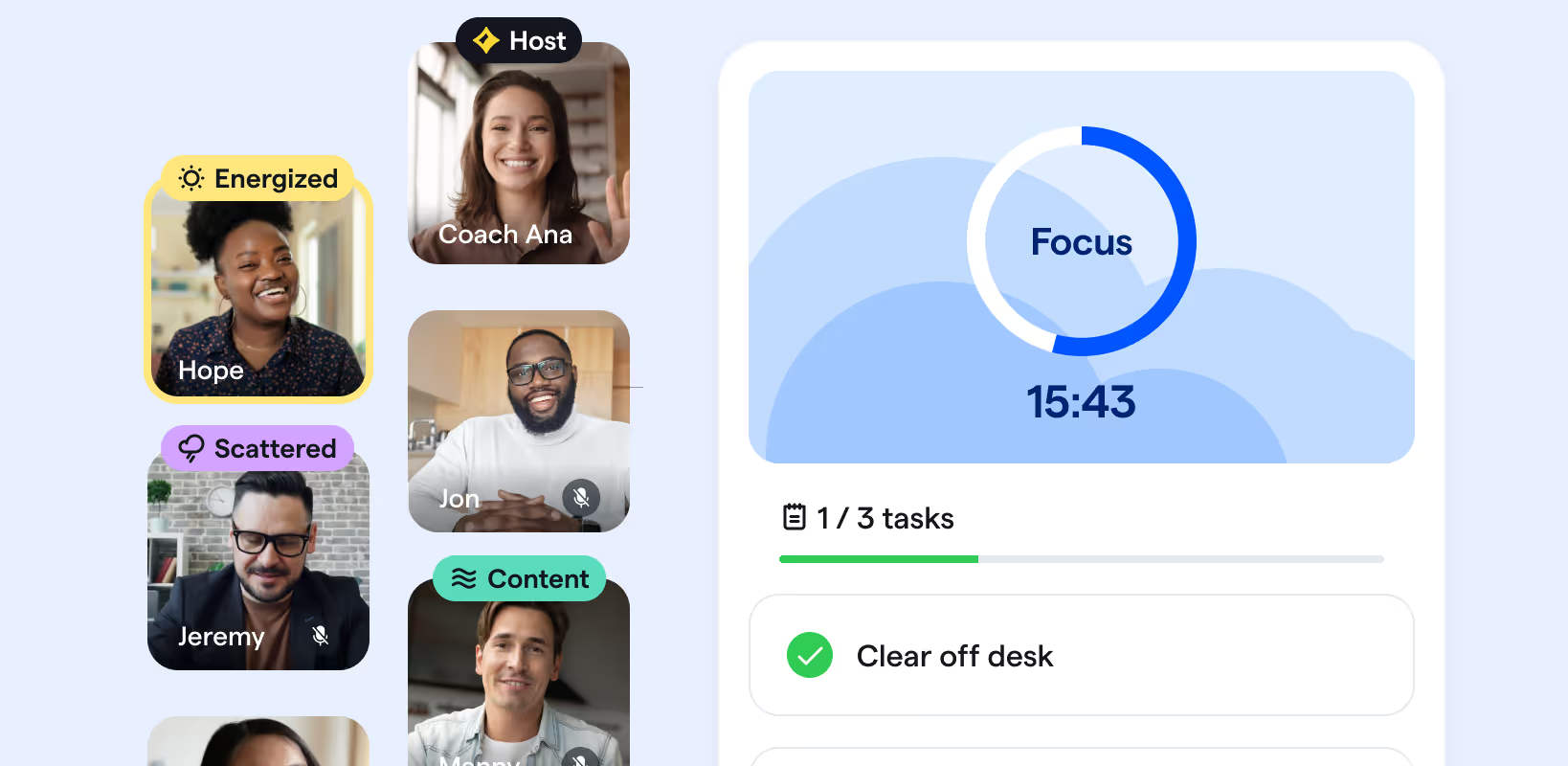
Body Doubling
Daily co-working sessions hosted by Shimmer coaches where shared presence enhances focus, persistence, and task completion.
Informed by research on Co-Regulation and Social Facilitation.
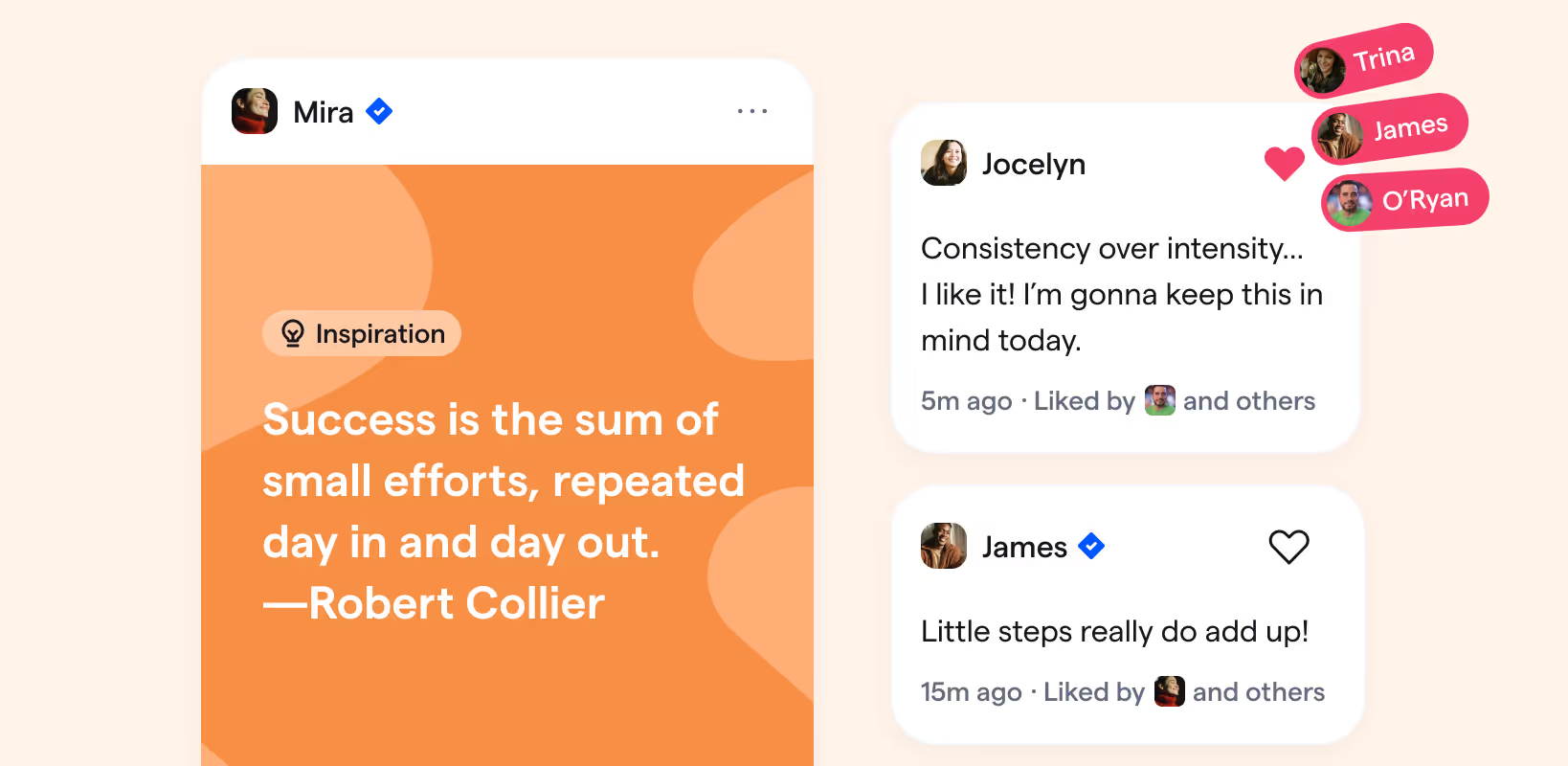
Insights Feed
Stream of collective wisdom and growth from coaching sessions and learning journeys that facilitate discussion amongst members.
Drawing from Self-Determination Theory, Social Learning Theory, and Social Identity Theory.
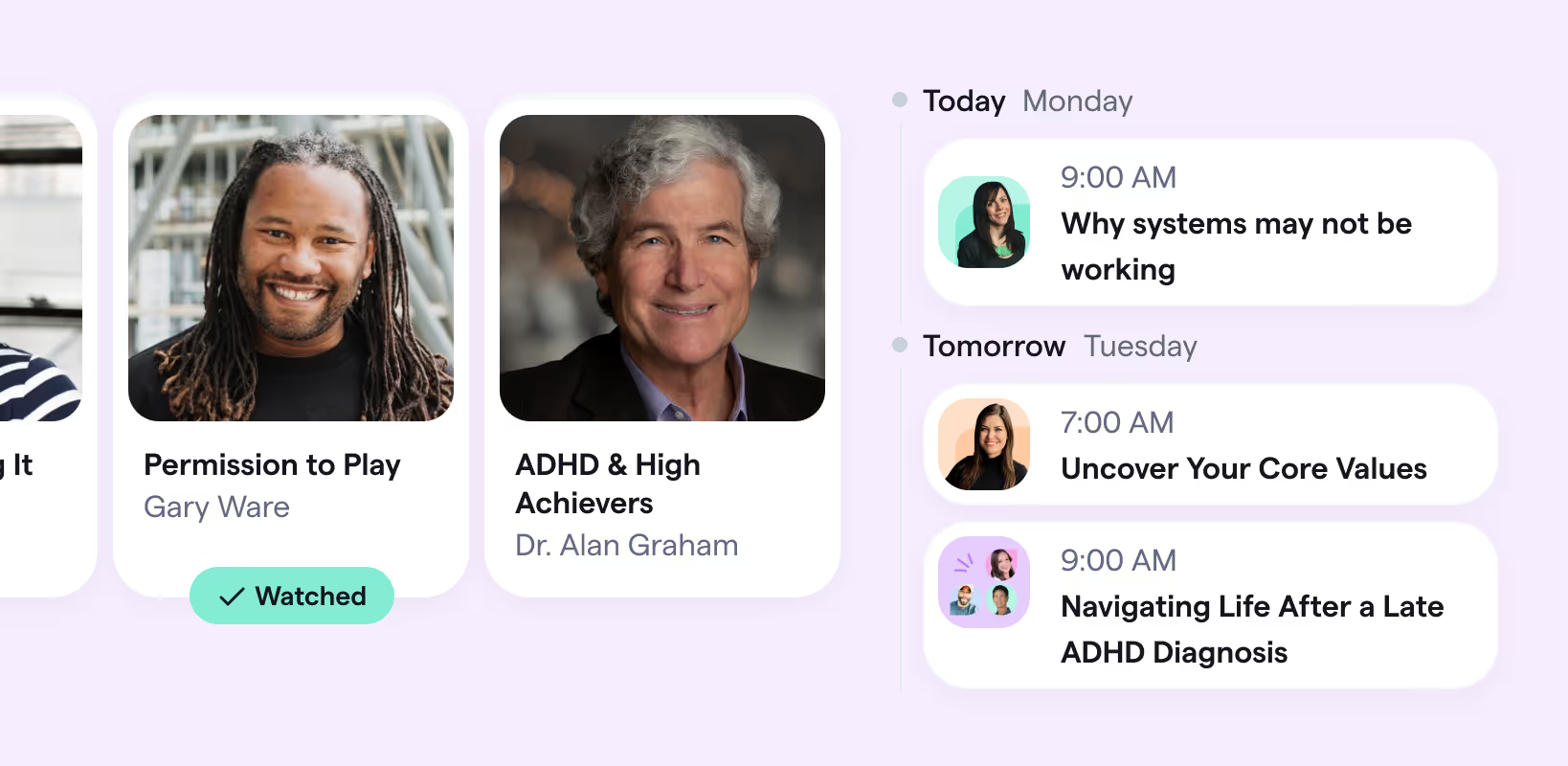
Workshops
Interactive group sessions on core ADHD-related topics that combine psycho-education and peer-to-peer learning.
Informed by Communities of Practice research and topic-specific literature, and reviewed by Shimmer’s senior care leadership for quality and accuracy.
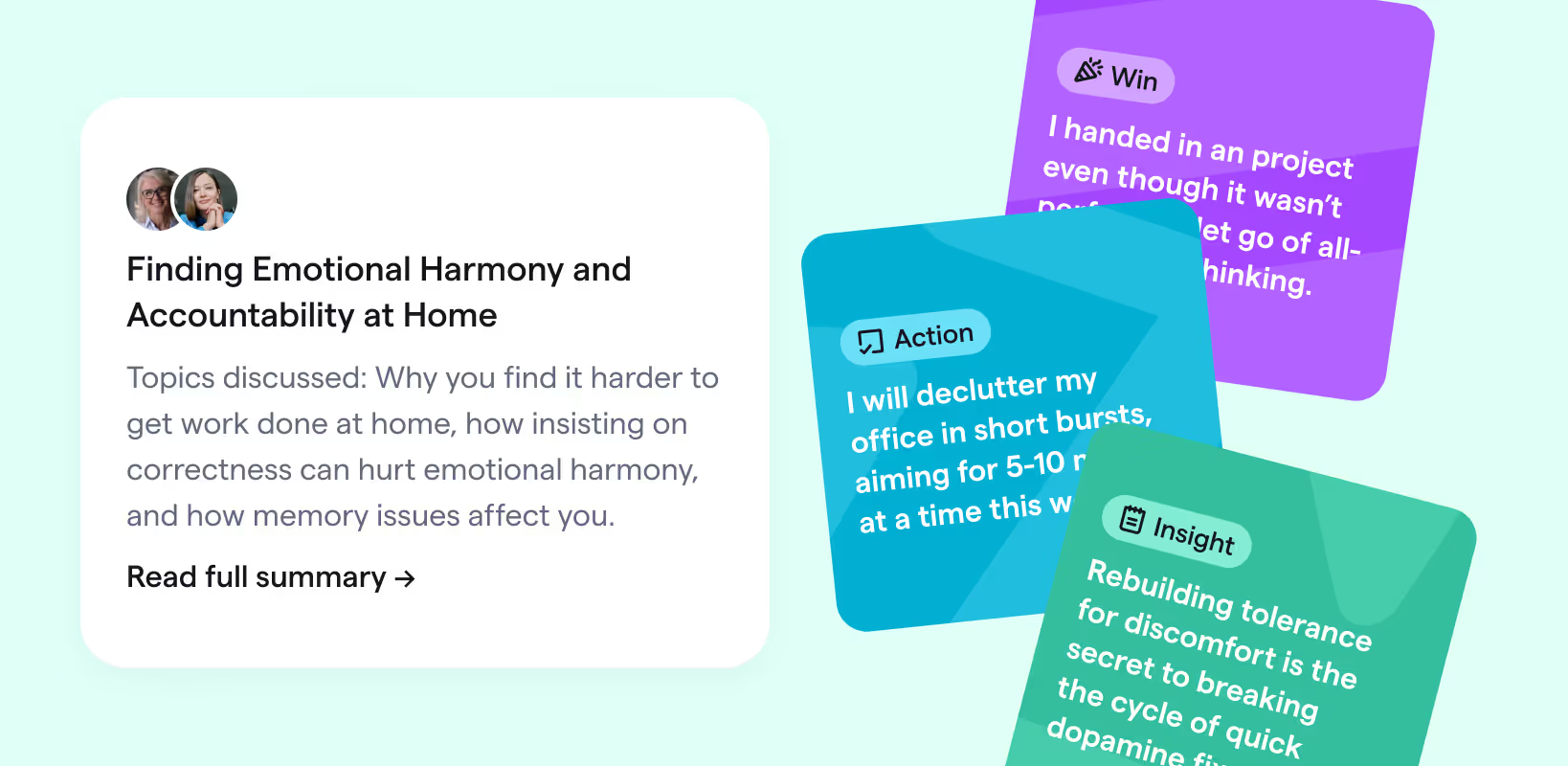
AI Integration
Clear session summaries, surfacing of insights, and supportive progress tracking to reduce the cognitive load for both neurodivergent members and coaches, with privacy and confidentiality in mind.
Informed by inclusive design practices and guided by Barkley’s model of executive functioning.
Our dual vantage point
Shimmer occupies a unique position in the ADHD support ecosystem: we serve both individuals with ADHD and the coaches who work with them. This dual perspective allows us to generate practice-based evidence, identifying not only what members report as effective, but also what practitioners need to deliver high-quality, sustainable care.
By integrating member outcomes, practitioner perspectives, and continuous feedback, we move beyond isolated case reports to identify patterns that inform scalable, evidence-informed models of care.
By integrating practitioner experience with member outcomes, Shimmer is building the infrastructure required for ADHD care that is both evidence-informed and operationally scalable.

Coaching research leadership

Xenia is the Principal Coaching Psychologist (UK BPS accred.), Strategic HRD Officer and Head of the Shimmer Research Lab. She has an MBA and is a Fellow Chartered Member of the CIPD, a key international HR organisation. Xenia holds several Masters degrees in social science research and has expertise in adult neurodevelopment with specialism in applying coaching psychology towards improving quality of life for adults with neurodevelopmental conditions.

Alex Bellitter is Shimmer's Lead Coach and Senior Manager of Coaching. Alex holds a Master’s degree in Psychology and certifications as a National Board Certified Health and Wellness Coach (NBC-HWC), Lifestyle Medicine Coach, and International Coaching Federation Professional Certified Coach (PCC). She has received extensive training from some of the most respected organizations in the coaching psychology field and combines her coaching education with operational leadership to uphold the highest standards of neurodivergent care and coaching ethics.


